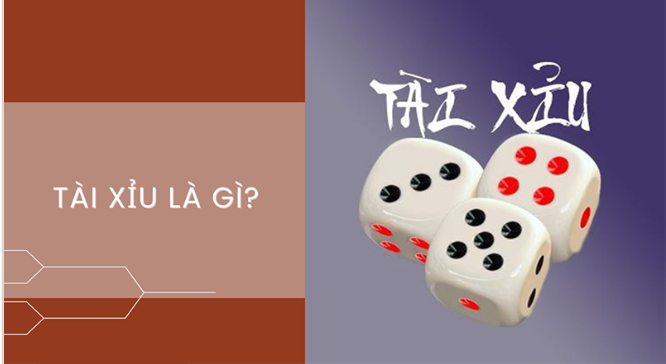tài xỉu online, with its fast-paced dice rolls and unpredictable outcomes, is as much a psychological challenge as a game of chance. Understanding the cognitive and emotional factors influencing player behavior can enhance decision-making and enjoyment. This article examines the psychology behind tài xỉu, analyzing how biases, emotions, and social influences shape strategies and outcomes, offering insights for both casual and dedicated players.
Unlike skill-based games, tài xỉu relies on luck, yet psychological principles govern how players approach bets, manage risks, and react to wins or losses. By mastering these mental aspects, players can optimize their tài xỉu experience.
Cognitive Biases in Tài Xỉu Gameplay
Cognitive biases significantly impact tài xỉu decisions. The gambler’s fallacy—believing past rolls influence future ones—leads players to chase “due” outcomes, like betting xỉu after multiple tài results. Each roll is independent, with a 48.61% chance for either, yet this fallacy persists.
Confirmation bias also plays a role. Players favor bets aligning with recent wins, ignoring statistical realities. Awareness of these biases helps maintain rational betting in tài xỉu.
Emotional Influences on Decision-Making
Emotions drive tài xỉu behavior. Winning streaks trigger euphoria, prompting riskier bets like specific triples. Losses can lead to frustration, fueling impulsive wagers to recover funds. This “tilt” state disrupts strategy.
Techniques like mindfulness and pre-set betting limits counteract emotional swings. Taking breaks during intense tài xỉu sessions restores clarity.
Risk Perception and Tolerance
Tài xỉu players vary in risk tolerance. Conservative players stick to low-variance tài/xỉu bets, while thrill-seekers chase high-payout triples. Understanding your risk profile informs strategy. For instance, risk-averse players allocate 80% of bets to safe options, reserving 20% for speculative wagers.
Prospect theory explains why losses feel more impactful than wins. In tài xỉu, a $100 loss stings more than a $100 win satisfies, influencing bet sizing.
Social Psychology in Tài Xỉu Settings
In live tài xỉu games, peer influence shapes behavior. Crowds cheering for tài can sway individual bets, a phenomenon called social proof. Online chat rooms replicate this, with players mimicking popular strategies.
Group dynamics also foster competition. In tournaments, players may adopt aggressive tactics to outshine peers, even if suboptimal.
The Role of Superstition in Tài Xỉu
Superstitions are prevalent. Players may avoid certain bets during “unlucky” times or perform rituals before rolls. While irrational, these beliefs enhance confidence, indirectly aiding focus in tài xỉu.
Decision Fatigue and Its Impact
Prolonged tài xỉu sessions cause decision fatigue, reducing judgment quality. Limit sessions to 1-2 hours, using automated betting tools on online platforms to maintain consistency.
Motivation and Goal Setting
Players approach tài xỉu with varied motives: entertainment, profit, or social bonding. Clear goals—such as limiting losses to 10% of bankroll—sharpen focus. Intrinsic motivation (enjoyment) sustains longer engagement than extrinsic (profit-driven) goals.
Psychological Strategies for Better Play
Adopt a pre-game routine: set budgets, review odds, and visualize scenarios. Practice self-talk to counter negative emotions. Journaling outcomes helps identify behavioral patterns in tài xỉu.
Online vs. Live Tài Xỉu: Psychological Differences
Online tài xỉu offers anonymity, reducing social pressure but increasing impulsivity due to accessibility. Live games heighten adrenaline, amplifying emotional stakes. Adjust strategies accordingly.
Addiction Risks and Mitigation
Tài xỉu’s quick pace can lead to compulsive play. Signs include chasing losses or neglecting responsibilities. Use tools like deposit limits or seek support from groups like GamCare.
Cultural Influences on Player Psychology
In Vietnam, tài xỉu ties to cultural optimism, encouraging bold bets. Western players may approach it analytically, affecting risk choices.
Technology’s Role in Shaping Behavior
AI-driven platforms suggest bets, influencing decisions. Transparent algorithms build trust, while gamified interfaces boost engagement.
Training the Mind for Tài Xỉu Success
Cognitive exercises, like probability quizzes, sharpen skills. Meditation enhances emotional control.
Community and Psychological Support
Forums provide peer insights, reducing isolation. Sharing experiences normalizes setbacks.
Future Psychological Trends
Neurofeedback may optimize focus for tài xỉu players, merging tech with psychology. https://taixiuvn.club/
Conclusion: Mastering the Mind in Tài Xỉu
Understanding psychological drivers enhances tài xỉu performance. By managing biases, emotions, and social influences, players can approach the game with clarity and confidence.










